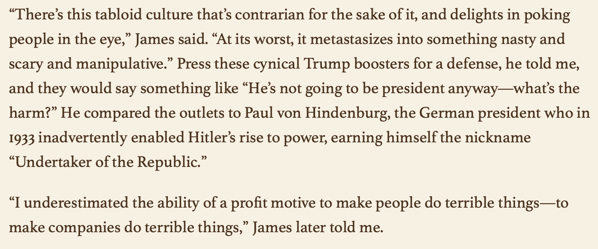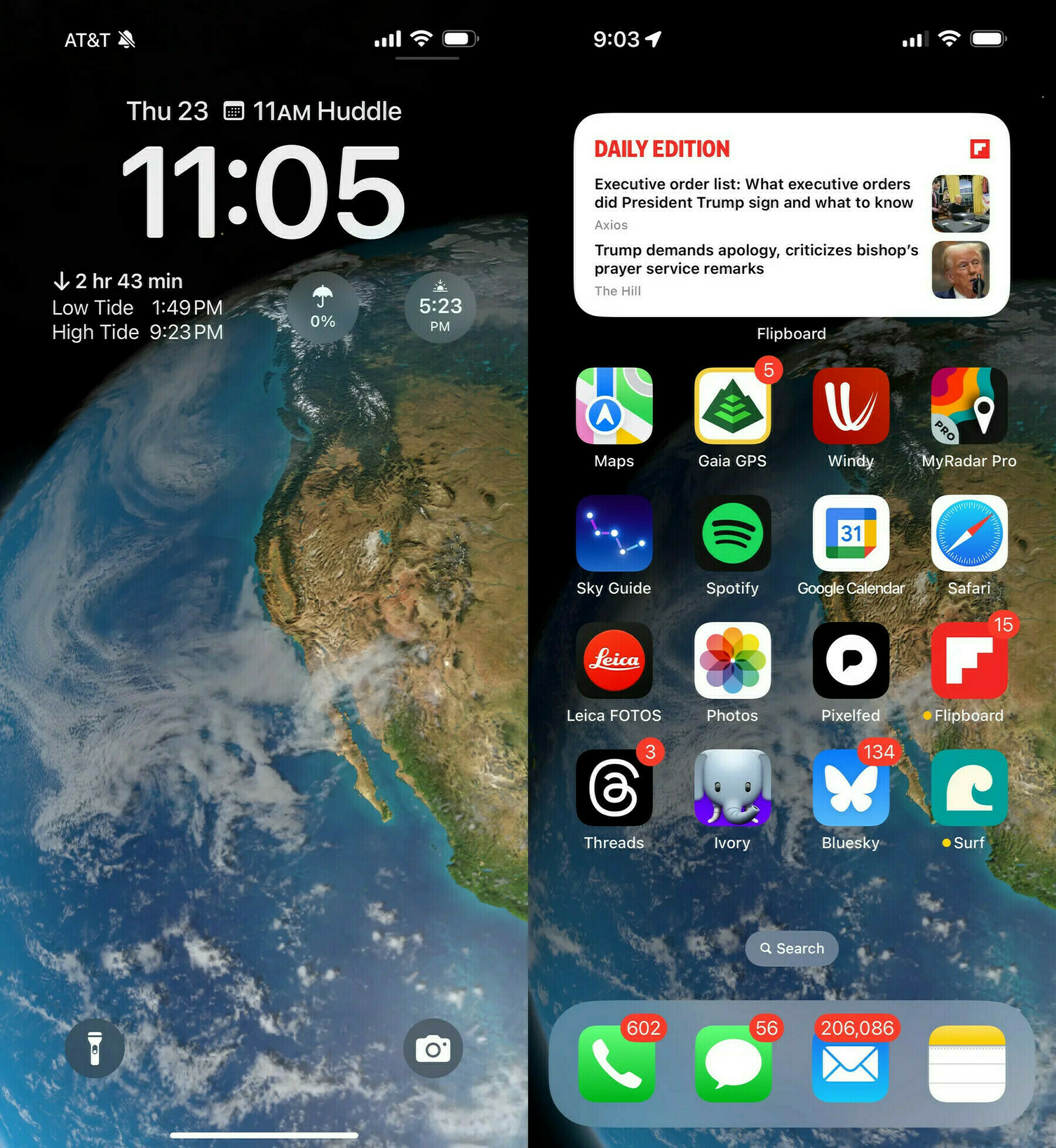‘The Terror Is Real’: An Appalled Tech Industry Is Scared to Criticize Elon Musk
‘The Terror Is Real’: An Appalled Tech Industry Is Scared to Criticize Elon Musk - POLITICO:
“Not everyone in tech is supporting Elon Musk,” Mark said. “It’s just that you don’t hear their side because they’re afraid to speak up.”
Fear is a key part of the process of the far right.
What independent nuclear deterrent?
US support to maintain UK’s nuclear arsenal is in doubt, experts say :
Downing Street sought to play down concerns earlier this week after diplomatic figures including the former British ambassador to the US Sir David Manning floated the scenario of an end to Anglo-US nuclear cooperation.
However, calls for Britain to make alternative plans have been joined by the former UK foreign secretary Sir Malcolm Rifkind, who initiated talks in the 90s between the UK and France on nuclear weapons cooperation.
“It really is necessary for Britain and France to work more closely together because if American reliability ever came into question, then Europe could be defenceless in the face of Russian aggression,” he said.
The only nuclear weapons Britain really has are American missiles, which have British warheads and can be used independently but are drawn from a “pool” with the US, and maintained by US technicians. In other words, at any point, the US can pull the plug on the whole thing.
Microsoft pushes ahead with GenAI games that no one wants:
“When we rely on this stuff we are implicitly empowering a class of people who own these tools and don’t give a fuck about how they reshape our lives.”
The replacement of craft with capital continue apace.
In the past couple of months I’ve subscribed to 404media, The Verge, and Wired, and I’m really happy to do it. All three of them are doing exceptional work and great reporting. While mainstream media is generally failing us all, tech sites are stepping up to the challenge.
Of course Y Combinator is investing in and cheering on technologies which dehumanise low paid workers. Of course they are.
Grok blocks posts saying Trump or Musk spread misinformation
Grok, the AI part of X, got caught spinning responses in a way which prevented it from surfacing posts which accused either Elon Musk or Donald Trump of spreading misinformation:
Grok, Elon Musk’s ChatGPT competitor, temporarily refused to respond with “sources that mention Elon Musk/Donald Trump spread misinformation,” according to xAI’s head of engineering, Igor Babuschkin.
Babuschkin promptly claimed this was an error, throwing an unnamed engineer under the bus:
In response to questions on X, Babuschkin said that Grok’s system prompt (the internal rules that govern how an AI responds to queries) is publicly visible “because we believe users should be able to see what it is we’re asking Grok.” He said “an employee pushed the change” to the system prompt “because they thought it would help, but this is obviously not in line with our values.”
There’s two different ways of looking at this, and a lot will depend on how you feel about Musk and/or Twitter/X. The first is positive – that Grok (unlike every other LLM you can think of) publishes their system prompts and so there’s a much greater level of transparency.
However, this depends on you actually trusting Musk/X – and a lot of people don’t trust him more than they can throw him. After all, could this just be a case of something being revealed that shouldn’t, but that’s actually in use in a hidden set of prompts?
Giving Musk the benefit of the doubt feels unwise, given the fact he consistently lies or uses half-truths about almost everything, from his involvement in the founding of Tesla through to how many kids he has.
This quote from James Murdoch is absollutely telling, and absolutely true. Tabloids were the original media trolls: Musk and his acolytes are just the digital native equivalent.

Like many people who grew up in media in the 90s/00s, I am endlessly fascinated by the Murdochs, and this Atlantic piece on James is absolutely juicy reading.
I’m watching a video from someone who switched from MacBook to Ubuntu on a ThinkPad and they have have HELL getting DaVinci to work. God bless them.
Apple to court: Please let us help Google avoid the law
Apple asks court to halt Google search monopoly case | The Verge:
Apple writes that if its appeal isn’t handled until after the remedies trial has begun and it’s unable to participate, “Apple may well be forced to stand mute at trial, as a mere spectator, while the government pursues an extreme remedy that targets Apple by name and would prohibit any commercial arrangement between Apple and Google for a decade. This would leave Apple without the ability to defend its right to reach other arrangements with Google that could benefit millions of users and Apple’s entitlement to compensation for distributing Google search to its users.”
Translation: “Hey, Google’s been paying us $20bn in order to avoid competition and we think that’s just fine, kids. Oh and we would very much like to have similar deals in the future, so us big tech corps can keep things sewn up nice and tight. PS DONALD PLEASE HELP."
A brief history of the Finder
A brief history of the Finder – The Eclectic Light Company:
Thus, each Finder window could only show the contents of a single folder, and that location couldn’t be changed within that window. Navigating from one folder to another was accomplished by opening windows. It wasn’t uncommon to end up with stacks of half a dozen or more, each displaying the contents of a different folder, and Steve Jobs once unjustly criticised this as turning the user into a window janitor.
It’s difficult to explain to people who have grown up in the era of the GUI how advanced the Finder felt when it first appeared. As it developed, it got more complex, but the basics of how it works have come to dominate the way almost every user interface functions.
Ted Cruz thinks that free speech is censorship
Ted Cruz thinks that kids having access to free internet is “censoring conservative viewpoints”:
Cruz’s press release said that “unlike in a classroom or study hall, off-premises hotspot use is not typically supervised, inviting exposure to inappropriate content, including social media.” Cruz’s office alleged that the FCC program shifts control of Internet access from parents to schools and thus “heightens the risk of censoring kids' exposure to conservative viewpoints.”
Has there ever been a clearer demonstration that conservatives believe only their viewpoints should be allowed? Putting forward any other opinion is, apparently, “censorship”. In the sense that the truth is “censoring” lies, I suppose.
Pebble is back, baby, bac
Kudos to Google for open sourcing the Pebble operating system. And I’m really looking forward to getting a Pebble this time round:
Rather than buy another smartwatch, Migicovsky decided to try and get Pebble going again. He sold his most recent startup, a messaging app called Beeper, to Automattic last year and left the company in the fall. Since then, he’d thought about starting a Pebble-like product from scratch, figuring it’d be easier to do the same thing again a second time. “But then I was like, what if I just asked Google to open-source the operating system?” he says. It felt like a long shot, but he knew the code was just sitting dormant inside Mountain View somewhere. So he asked. A few times.To Migicovsky’s surprise, Google agreed to release Pebble OS to the public. As of Monday, all the Pebble firmware is available on GitHub, and Migicovsky is starting a company to pick up where he left off.
WANT:
Part of prolific fashion designer Karl Lagerfeld’s estate is currently being auctioned off. The auction includes what you’d expect from an average estate auction: flatware, silverware, artwork, and books.
Hey Meta, what are you running your servers on again?
Wait what now? Linux is malware? The same Linux that Meta runs a load of servers on?
Facebook is banning posts that mention various Linux-related topics, sites, or groups. Some users may also see their accounts locked or limited when posting Linux topics. Major open-source operating system news, reviews, and discussion site DistroWatch is at the center of the controversy, as it seems to be the first to have noticed that Facebook’s Community Standards had blackballed it.A post on the site claims, “Facebook’s internal policy makers decided that Linux is malware and labeled groups associated with Linux as being ‘cybersecurity threats.’ We tried to post some blurb about distrowatch.com on Facebook and can confirm that it was barred with a message citing Community Standards.
The unread email count on Mike McCue’s home screen is literally giving me the fear.

So much of this Reid Hoffman article on “making AI work for us” reads like someone who didn’t have any friends when they were a child and now wants a robot friend who is wise, kind and doesn’t try to steal their lunch money. It would be sad if these guys weren’t bending the world to their will.
I’ve been saying this for a long time: SEO should not define your content strategy, and long term the publishers which do so will pay a hefty price. That doesn’t mean you don’t consider SEO important. It just means it’s not everything.
Trump's new age of acquiesence
Lewis Goodall is really on point with this:
That is how Trumpism is best understood. It is about the free expression of power, without hindrance, even over our collective understanding. And this week, it reached a new apex: Trump wants the power to shape not only the present, but the past, history itself. That is how the pardoning of the January 6th insurrectionists should be seen. There was much speculation that Trump might only pardon some, not all of those impriosned, to leave some of the most egregious offenders, including those literally caught on film violently assaulting police officers. But he is said to have told his team to “fuck it. Release them all.” This wasn’t just about rewarding his people, though it is truly chilling to consider that he has released his own de facto paramilitary force, loyal entirely to himself, highly armed, precisely at the moment he takes away the state security provided to a whole host of his enemies. It’s about something deeper: about history and how we understand it.
In releasing everyone, the message he sends is that his narrative of January 6th is the correct one- that these were minor incidents. That we did not see what we saw, that we cannot believe our own eyes. This coincides with the new Congress, at Trump’s behest, investigating not the Jan6th insurrectionists, but the Congressional committee which investigated them. He and his allies have been spreading conspiracies about what happened at the Capitol for years. The pardons are the final coup de grace: Nothing could have happened because no crimes occurred. It was all just a liberal, Democratic confection, like everything else. As Orwell said, “Who controls the past controls the future. Who controls the present controls the past.” In effect, Trump pardoned himself.
